Iran-Saudi deal complicates matters for Israel: Kissinger
Former US Secretary of State Henry Kissinger weighs in on the repercussions that the recent China-brokered rapprochement deal between Iran and Saudi Arabia, is going to have for the Israeli regime in the Middle East region.
Cited by The Washington Post in an article that the daily published on Thursday, Kissinger considered the deal -- that was reached between Tehran and Riyadh under Chinese mediation in Beijing earlier in March -- to amount to "a substantial change in the strategic situation in the Middle East."
The Saudi-Iranian deal would complicate matters for the Israeli regime, said the Nixon-era top diplomat.
This was due to the fact that the occupying regime would no longer be able to try pressuring Iran as easily as it used to before the agreement was signed, he explained.
From now on, it would have to "take into account Chinese interests" if it wanted to keep trying to "[mount] pressure on Iran," Kissinger added.
China as kingmaker?
He also said the detente deal amounted to a major step by Beijing in its efforts to have a say in shaping the "world order."
"China has in recent years declared that it needs to be a participant in the creation of the world order. It has now made a significant move in that direction" by mediating the agreement, Kissinger said.
The author of the article, Washington Post foreign affairs columnist David Ignatius, also acknowledged that "the US is no longer the indispensable power in the region...”
"China has claimed a share" of the power to act as an intermediary between the regional nations, Ignatius wrote.
Apparently citing another instance of China's growing power in the region, he noted that another major regional player, the United Arab Emirates, had also started to "court" Beijing.
Kissinger was, meanwhile, also cited as adding that the deal inked between Tehran and Riyadh also marked an effort by the Saudis to "balance their security by playing off the US against China."

Iran condemns deadly US attacks on Yemen as ‘war crime’, blasts international silence
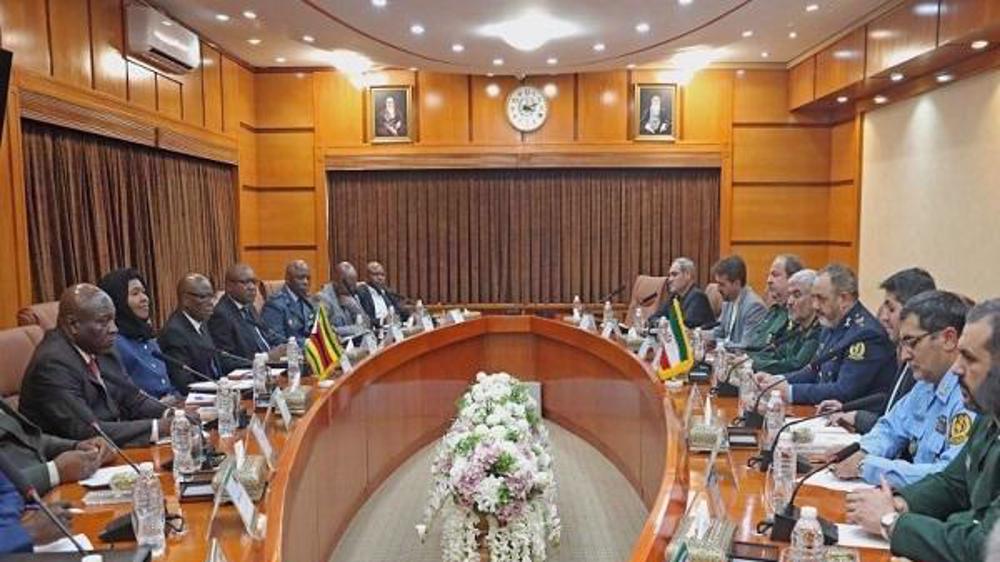
Iran ‘fully ready’ to help Zimbabwe in its fight against terrorism: Defense minister

Pezeshkian visits Baku as Iran, Azerbaijan look to strengthen ties
VIDEO | Press TV's news headlines
Euro-Med: At least 94% of those killed in Gaza are civilians
VIDEO | Expo 2025 in Tehran showcases Iran trade, investment opportunities
VIDEO | Fresh US airstrikes target more Yemeni civilians
UN: US strikes in Yemen pose growing risk to civilians
VIDEO | Iran economic diplomacy
Iran mulls buying oil from Azerbaijan amid warming ties: Report
Israeli settlers storm al-Aqsa Mosque amid intensified West Bank raids


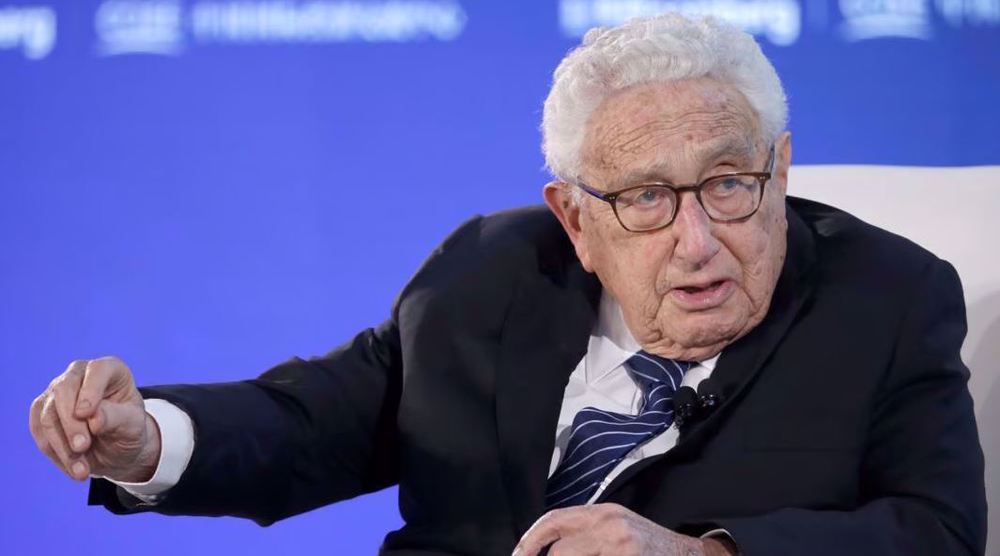
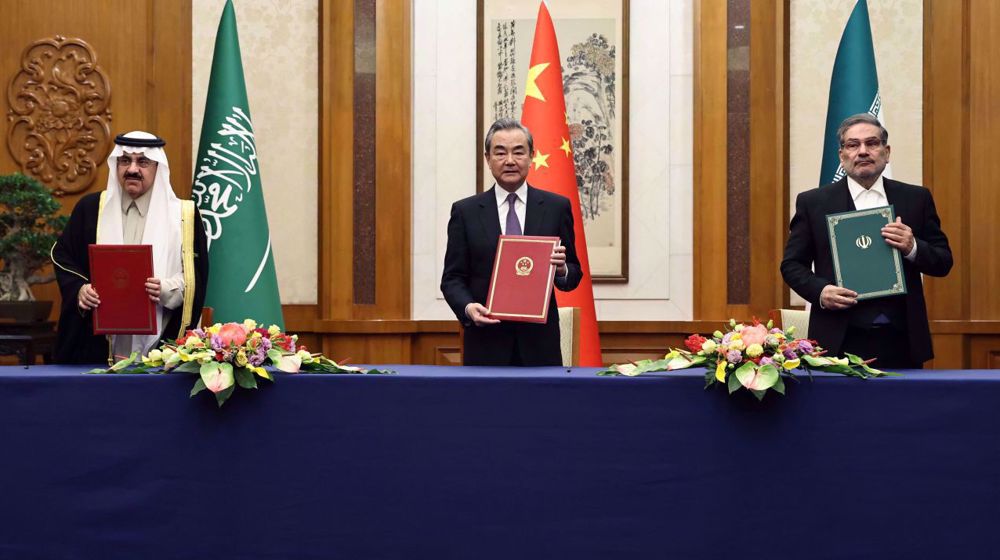



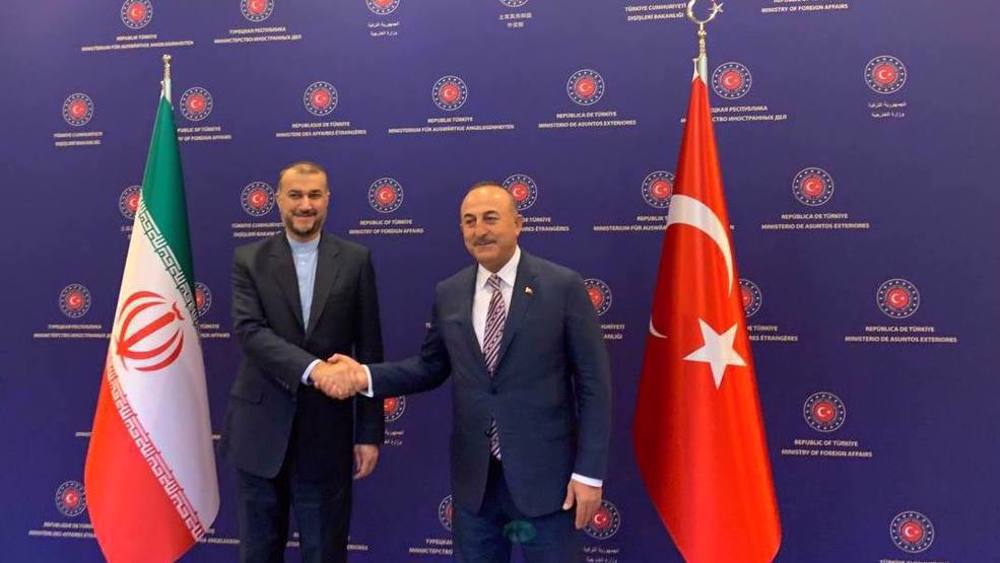
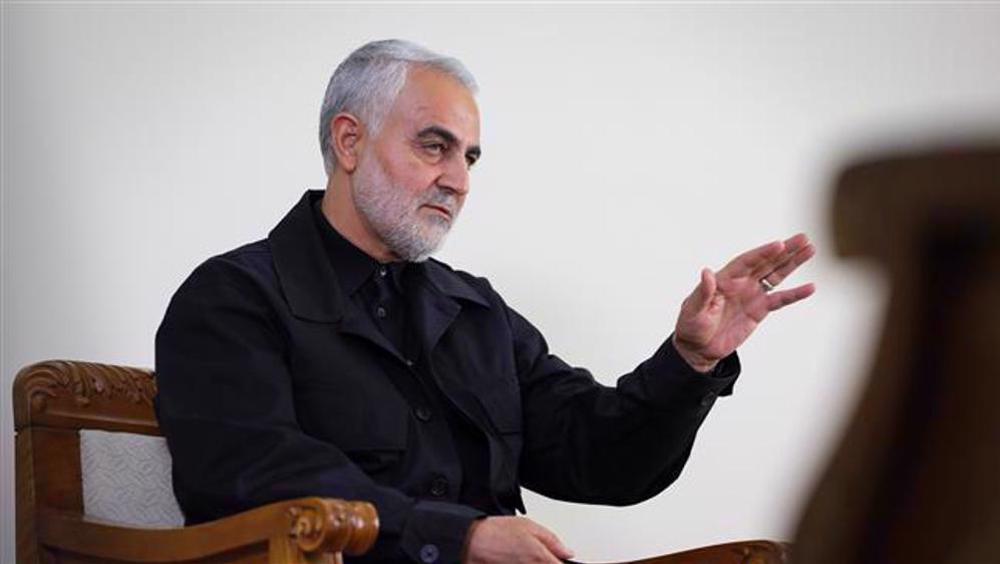
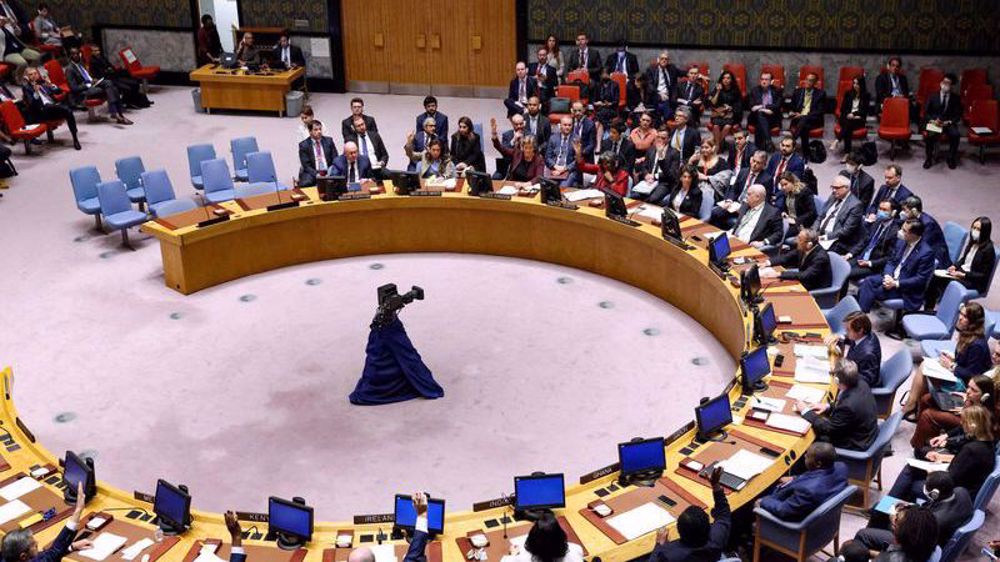

 This makes it easy to access the Press TV website
This makes it easy to access the Press TV website